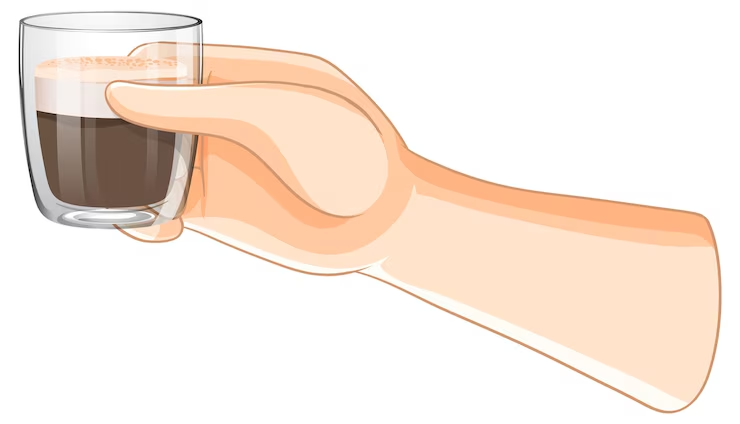Joint pain can sneak into your life and slowly erode the quality of everyday activities—walking, climbing stairs, bending, or even sitting. For millions of people dealing with arthritis, inflammation, or aging-related joint problems, joint health supplements offer a ray of hope. But are you taking them the right way? And which ones truly work?
This article dives deep into everything you need to know about joint supplements—how they work, what to choose, how to use them correctly, and the top 8 expert-backed tips to get the most out of them.
🌿 What Are Joint Health Supplements?
Joint health supplements are specially formulated products designed to support the function and integrity of your joints. They contain natural or synthetic ingredients that promote healthy bones, cartilage, tendons, and ligaments, which are essential for smooth and pain-free movement.

These supplements work by enhancing joint lubrication, reducing inflammation, and supporting cartilage regeneration. Ingredients such as glucosamine, chondroitin, MSM, turmeric, and collagen are commonly used to relieve stiffness, improve flexibility, and protect against wear and tear, especially in aging individuals or those with joint conditions.
Whether you are dealing with arthritis, recovering from an injury, or simply want to maintain strong and flexible joints, joint health supplements can play a crucial role. When combined with a healthy lifestyle, proper nutrition, and regular exercise, they offer long-term benefits in maintaining joint health, mobility, and overall physical well-being.
These supplements are typically taken to:
- Relieve joint pain
- Reduce inflammation
- Improve flexibility
- Rebuild cartilage
- Prevent further damage in arthritic joints
🧪 How Do They Work?
Most joint supplements work in three key ways:
- Cartilage Protection: Ingredients like glucosamine and chondroitin help maintain and rebuild cartilage—the cushioning layer between bones.
- Anti-inflammatory Action: MSM, turmeric, and omega-3s help lower inflammation, which is often the root cause of stiffness and pain.
- Joint Lubrication: Hyaluronic acid and collagen help retain moisture and improve the synovial fluid around joints.
🔍 Common Ingredients in Joint Health Supplements
Joint health supplements are made with carefully selected ingredients that are scientifically proven to support joint structure and function. These supplements are designed to relieve pain, reduce inflammation, and enhance mobility by targeting the root causes of joint discomfort.
Many joint health supplements contain a combination of powerful ingredients like glucosamine, chondroitin, MSM (methylsulfonylmethane), and turmeric. These compounds help rebuild cartilage, lubricate joints, and minimize stiffness. Others may include collagen, hyaluronic acid, or omega-3 fatty acids, which further contribute to cushioning and flexibility.
Because every joint condition is different, manufacturers often blend multiple active ingredients into one formula. This synergy helps provide broader support for joint health, making the supplement more effective. When used consistently and in the correct dosage, these ingredients can work together to restore mobility, reduce inflammation, and improve overall joint performance.
1. Glucosamine

- A building block of cartilage
- Helps rebuild worn-out tissue
- Often combined with chondroitin
2. Chondroitin Sulfate
- Helps cartilage retain water
- Reduces stiffness and improves function
3. MSM (Methylsulfonylmethane)
- Reduces pain and swelling
- Supports detoxification and collagen production
4. Turmeric (Curcumin)
- Natural anti-inflammatory
- Useful in managing arthritis
5. Hyaluronic Acid
- Lubricates joints
- Helps with shock absorption
6. Collagen (Type II preferred)
- Supports cartilage and connective tissue
- May improve elasticity and strength
7. Boswellia Serrata
- Reduces joint inflammation
- Works well with turmeric
8. Omega-3 Fatty Acids (EPA/DHA)
- Reduces morning stiffness
- Supports synovial membrane health
🦵 Who Should Take Joint Health Supplements?
Joint Health Supplements aren’t just for the elderly—they benefit people of all ages. Whether you’re an athlete putting regular strain on your joints or someone who sits at a desk all day, your joints can suffer from wear and tear. These supplements can support joint flexibility, reduce inflammation, and even slow the breakdown of cartilage over time.
Glucosamine, chondroitin, MSM, and turmeric are some of the most popular ingredients found in Joint Health Supplements. These natural compounds work together to support cushioning between joints, improve mobility, and reduce discomfort. People with arthritis, chronic joint pain, or those recovering from joint injuries often report noticeable improvements after consistent use of the right supplement.
Adding Joint Health Supplements to your daily routine can be a smart move for maintaining long-term mobility and overall comfort. Alongside regular exercise and a balanced diet, these supplements can help protect your joints before problems start. Instead of waiting for joint pain to become a serious issue, consider being proactive. Your future self will thank you for taking early steps toward healthier, pain-free movement:
- 🧓 Aging adults experiencing stiffness
- 🏃 Athletes and active individuals with wear and tear
- 💪 Fitness enthusiasts under heavy joint load
- 🤕 People with arthritis or osteoarthritis
- 👨👩👧👦 Individuals with a family history of joint issues
- 🧘 Desk workers with posture-related joint strain
💡 Top 8 Tips for Taking Joint Health Supplements Effectively
Many people make the mistake of thinking that simply purchasing joint health supplements will solve all their mobility or pain issues. While these products can be highly effective, they must be used strategically to deliver real results. Understanding your body’s needs, selecting the right ingredients, and maintaining consistency are all essential parts of making joint support supplements work for you.
Joint health supplements work best when combined with a healthy lifestyle. Staying physically active, eating a balanced diet rich in anti-inflammatory foods, and maintaining a healthy weight all support the effectiveness of supplements. Look for key ingredients such as glucosamine, chondroitin, MSM, turmeric, or collagen—each of which plays a role in reducing inflammation, rebuilding cartilage, and promoting long-term joint flexibility and comfort.
Remember, not all supplements are created equal. Choose trusted brands with clinically studied ingredients, and always follow the recommended dosage. It may take a few weeks to notice improvements, so patience and consistency are key. When used wisely, joint health supplements can be a powerful ally in maintaining mobility, reducing stiffness, and keeping you active and pain-free as you age.
✅ Tip 1: Identify the Right Supplement for Your Condition

Every joint issue stems from a different underlying cause—whether it’s wear and tear, inflammation, injury, or age-related degeneration. That’s why it’s important to choose joint health supplements that are specifically designed to address your unique needs, rather than relying on a one-size-fits-all approach.
For example, individuals with osteoarthritis may benefit most from joint health supplements containing glucosamine and chondroitin, which help rebuild cartilage and ease stiffness. If inflammation is the primary issue, ingredients like turmeric, MSM, and Boswellia can offer natural anti-inflammatory support and pain relief.
Athletes or people with joint strain due to overuse may find relief with collagen, hyaluronic acid, and omega-3 fatty acids. These ingredients help with lubrication, flexibility, and repair. Choosing the right formula tailored to your specific condition ensures you get the maximum benefit from joint health supplements, making them more effective in restoring comfort and maintaining long-term joint function.
- For osteoarthritis: Glucosamine + Chondroitin + MSM
- For inflammation-based pain: Turmeric + Boswellia + Omega-3s
- For recovery from injury: Collagen + MSM + Vitamin C
- For overall joint lubrication: Hyaluronic Acid + Omega-3s
👉 Pro tip: Always check the dosage and source. Go for pharmaceutical-grade or NSF-certified options.
✅ Tip 2: Be Patient and Consistent
Unlike quick-relief medications, joint health supplements are not painkillers. They are designed to work gradually by nourishing the joints, rebuilding cartilage, and reducing inflammation at the source. This means their effects may not be immediate, but the benefits are often more sustainable over time.
Most people start to notice improvements in joint flexibility, reduced stiffness, and decreased pain after consistent use for 4 to 12 weeks. The body needs time to absorb the nutrients and respond by regenerating joint tissues and improving lubrication. Patience and daily supplementation are key to success.
To get the best results, it’s important to take joint health supplements regularly and as directed. Skipping doses or expecting instant results can lead to disappointment. When used correctly, these supplements can provide long-term support for joint function, comfort, and mobility, making them a reliable part of your daily wellness routine.
- Take the supplement daily, ideally at the same time each day.
- Set a reminder or use a supplement organizer.
- Track your progress using a joint pain diary or app.
✅ Tip 3: Take with Food—Especially Healthy Fats
To get the most out of your joint health supplements, it’s important to understand how your body absorbs them. Some key ingredients—such as turmeric, omega-3 fatty acids, and vitamin D—are fat-soluble. This means they dissolve in fat and are more effectively absorbed into your bloodstream when taken with meals that include healthy fats.
Including foods like avocados, nuts, seeds, olive oil, or fatty fish in your meal can significantly enhance the effectiveness of these ingredients. Without healthy fats, the body may not fully utilize the nutrients found in your joint health supplements, leading to reduced benefits and slower results.
To ensure optimal absorption, always take fat-soluble joint health supplements with a balanced meal. Avoid taking them on an empty stomach or with only light snacks. Consistent use, combined with proper nutrition, will help you experience the full joint-supporting power of these valuable supplements over time.
- Good food pairings: Avocados, nuts, olive oil, salmon
- Avoid: Taking with caffeine or alcohol, which may interfere with absorption
✅ Tip 4: Pair Supplements with the Right Diet
For best results, pairing your joint health supplements with an anti-inflammatory diet is essential. The food you eat plays a major role in either supporting or undermining joint health. While supplements work internally to rebuild and protect joints, your diet can either boost or block their effectiveness.
Certain foods can trigger inflammation and worsen joint pain. It’s important to avoid refined sugars, trans fats, and heavily processed meats, as these contribute to inflammation and may counteract the benefits of your joint health supplements. These foods can make your body more prone to stiffness, swelling, and discomfort.
Instead, focus on an anti-inflammatory eating pattern rich in whole foods like leafy greens, berries, fatty fish, olive oil, and nuts. When combined with high-quality joint health supplements, a clean, nutrient-dense diet can enhance mobility, reduce pain, and promote long-term joint wellness in a powerful, natural way.
Include more of:
- Fatty fish (salmon, sardines)
- Berries (blueberries, strawberries)
- Leafy greens (spinach, kale)
- Spices (turmeric, ginger)
Also, ensure you get enough:
- Vitamin D (sun or supplements)
- Calcium & Magnesium (for bones)
✅ Tip 5: Stay Active—Movement Feeds Your Joints
While joint health supplements play a key role in supporting joint function and reducing discomfort, they should not be your only strategy. To truly protect and strengthen your joints, you need to combine supplementation with regular physical activity that promotes joint mobility and flexibility.
Joints are designed for movement. Staying sedentary can lead to stiffness, reduced lubrication, and decreased range of motion. Engaging in low-impact exercises like walking, swimming, yoga, or cycling helps keep your joints active and healthy. These activities stimulate circulation and support the delivery of nutrients from your joint health supplements directly to the joint tissues.
By making movement a part of your daily routine, you’ll amplify the effectiveness of your joint health supplements and maintain long-term joint health. Remember, it’s the combination of consistent supplementation, physical activity, and proper care that leads to stronger, more resilient joints over time.
Try:
- Low-impact cardio: Walking, swimming, cycling
- Yoga or Tai Chi: For flexibility and balance
- Strength training: To support muscles around joints
Avoid:
- High-impact sports like running or jumping if joints are inflamed
✅ Tip 6: Avoid Mixing with Certain Medications

While joint health supplements are generally safe, certain ingredients can interact with medications, potentially altering their effectiveness or increasing side effects. For instance, turmeric and omega-3 fatty acids have blood-thinning properties that may amplify the effects of anticoagulant drugs like warfarin, aspirin, or clopidogrel, raising the risk of bleeding reddit.com+1reddit.com+1eatingwell.com+1yesglobal.website+1. Glucosamine and chondroitin can also affect blood clotting and should be avoided or used cautiously with anticoagulants slideum.com+5jsfnp.com+5yesglobal.website+5.
Additionally, glucosamine may influence blood sugar control in people taking diabetes medications, although current evidence suggests it usually does not significantly affect insulin sensitivity. Turmeric can also interact with NSAIDs, diabetes drugs, and stomach acid reducers, potentially increasing bleeding risk or altering drug absorption.
Before starting any joint health supplement, it’s crucial to consult your healthcare provider—especially if you’re on medications like blood thinners, diabetes drugs, NSAIDs, or antacids. They can help you choose the right supplement, avoid interactions, and ensure safe and effective joint care.
- Blood thinners (turmeric, omega-3s may increase bleeding risk)
- Diabetes meds (glucosamine may affect blood sugar)
- NSAIDs (high doses of turmeric + NSAIDs can strain the liver)
Always check with your doctor before starting a new supplement routine.
✅ Tip 7: Choose Quality Brands with Transparency
When choosing a joint health supplement, quality matters. Poorly made products may contain fillers, irrelevant excipients, or even harmful contaminants—yet still claim scientific effectiveness. Because dietary supplements aren’t tightly regulated before hitting shelves, companies can sometimes use deceptive “proprietary blends” or underdose active ingredients, making pills that look promising but deliver little to no benefit .
To ensure you’re getting a genuine joint health supplement, look for third-party certifications from reputable organizations like USP, NSF, or ConsumerLab. These independent tests verify that the formula matches the label, is free from contaminants, and contains the stated amounts of active components. Checking for these seals helps weed out untested or low-quality supplements and ensures consistent potency and purity.
Ultimately, investing in a transparent, third-party–tested joint health supplement pays off. You’ll avoid fillers, receive effective dosages, and gain confidence that your supplement truly supports joint structure, lubrication, flexibility, and overall joint well‑being.
Look for:
- Third-party tested products (USP, NSF, ConsumerLab)
- Clinically dosed formulas based on research
- Transparent labeling (no proprietary blends hiding ingredient amounts)
Popular trusted brands include: Thorne, Pure Encapsulations, Jarrow Formulas, Garden of Life, Nature Made
✅ Tip 8: Monitor Progress and Adjust Accordingly
When evaluating a joint health supplement, look for third-party certifications like USP or NSF to ensure quality and transparency. Studies show that many supplements contain fillers, underdosed active ingredients, or undisclosed “proprietary blends,” which may significantly reduce effectiveness. Choosing a verified product ensures you’re avoiding ineffective or even potentially harmful additives.
Quality joint health supplements should clearly list active ingredient amounts and be free from unnecessary excipients. Research indicates that clinically effective supplements—like glucosamine/chondroitin taken 8–12 weeks or collagen peptides—require proper dosing to support joint cartilage and reduce inflammation. Underdosed formulas may offer no real benefit.
Ultimately, investing in a reputable, third-party–tested joint health supplement means you’re more likely to get the clinical benefits promised—improved lubrication, flexibility, and joint comfort. With accurate labeling and quality assurance, you can confidently incorporate these supplements into your wellness routine for long-term joint support.
FAQ
1. What are joint health supplements?
Joint health supplements are dietary products designed to support joint function, reduce pain or stiffness, and improve mobility. They often contain ingredients like glucosamine, chondroitin, MSM, turmeric, and collagen to help protect cartilage and reduce inflammation.
2. Do joint health supplements really work?
Yes, many joint health supplements have been shown to help reduce joint discomfort and improve flexibility—especially when used consistently. However, results can vary based on the individual, the supplement quality, and the severity of joint issues.
3. How long does it take to see results?
It typically takes 4 to 8 weeks of regular use to notice improvements. Joint health supplements are not instant pain relievers—they work over time by nourishing joint tissues and reducing inflammation.
4. Are there any side effects?
Most joint health supplements are safe when used as directed. However, some people may experience mild side effects like nausea or upset stomach. Always check with a doctor if you’re taking other medications or have existing health conditions.
5. Who should take joint health supplements?
These supplements are ideal for seniors, athletes, and anyone experiencing joint pain, stiffness, or inflammation. They’re also useful for those looking to protect joint health as they age or increase physical activity.





